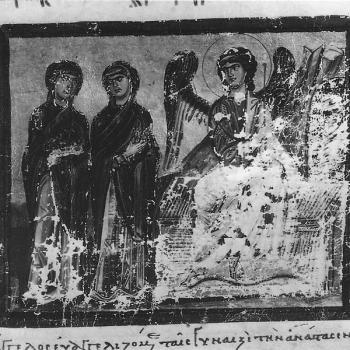Someone once said we will probably be surprised at those present at heaven’s “Thanksgiving table” (the wedding feast of the Lamb). The people we automatically assume will have a prime seat will be nowhere to be found…while those we’ve determined unworthy will sit in the supreme seats. Over the years, I’ve given this idea a lot of thought. On an inspection of Christianity today, I think we I think we need to think more about this and give it some serious thought, especially in the context of much of what’s going on in our world today and the way we approach Christianity generally, within society.

The past few years we’ve begun examining the state of Christianity, both socially and in light of our beliefs. With many in church concerned about running for political office or gaining political power, there’s question as to what about the things Jesus told us to do:
- Feed the hungry
- Clothe the naked
- Give drink to the thirsty
- Visit the sick
- Visit people in prison
- Welcome strangers
It is that last one, welcoming strangers, that I want to look at here (although all of it will connect). We must not, as Christians, ignore the call to welcome people who are different from us. There is no power, and no pursuit, that nullifies this call.
A parable about a dinner to come
“The Kingdom of Heaven can be illustrated by the story of a king who prepared a great wedding feast for his son. When the banquet was ready, he sent his servants to notify those who were invited. But they all refused to come!
“So he sent other servants to tell them, ‘The feast has been prepared. The bulls and fattened cattle have been killed, and everything is ready. Come to the banquet!’ But the guests he had invited ignored them and went their own way, one to his farm, another to his business. Others seized his messengers and insulted them and killed them.
“The king was furious, and he sent out his army to destroy the murderers and burn their town. And he said to his servants, ‘The wedding feast is ready, and the guests I invited aren’t worthy of the honor. Now go out to the street corners and invite everyone you see.’ So the servants brought in everyone they could find, good and bad alike, and the banquet hall was filled with guests.” (Matthew 22:2-10, NLT)
The man invited everyone to the wedding who “mattered.” He made sure his guests were desirable and make everyone on social media green with envy on account of the guest list. All the right connections would bring his son the best gifts. Then, come their turn, they would all invite him to their weddings. Because weddings served to celebrate alliances and social interconnection, the man used the wedding as a chance to climb the social ladder. His guests all had something he wanted, and he had something they wanted.
He wanted to “get.” This event was a chance to get what he wanted. The results of “want” and “get” are found in this parable.
A lesson in motives
When we discuss this parable, we usually focus on the “fuzziness” of it: the man invited people, they didn’t come, and he invited the “undesirables” in turn. It sounds like a nice story of inclusion, doesn’t it? Have we ever stopped to wonder that perhaps the original plans foiled because his motives were wrong? God had something to teach him as much as He desires to teach us something, too. The question we must confront: Why do we invite who we invite to feast at our (Christian) table?
Do you only invite people to attend church with you if they appear a certain way? If you’re a minister, do you only invite ministers to preach because they will draw a big crowd? Is it only because they had you speak at theirs? Are visitors only welcome if they can put a substantial offering in the collection plate? Are we more interested in politicians or businessmen while others go unnoticed? Is there room for the homeless man on the street or the struggling teenager, kicked out of their parents’ home for being transgender? Do they have a place on your guest list?
Our initial desire to protest meets reality. Every one of us likes to social climb. Our holiday tables, invites, and gift-giving reveal much about our priorities. Our banquets, too often, are tributes to us. This parable, however, reveals what happens when we host with the wrong motives.
Hearing the message for us
The “right people” didn’t show up for his son’s wedding. They didn’t even come up with good excuses. Most of them sounded like the general “we’re too busy” lines. It sounds much like every time most try to have an event, service, or conference these days. The resounding answer is always, “We’re too busy, we can’t come.” There’s always an excuse, none of them valid, which all boil down to one underlying message: what you’re doing isn’t important enough for us to make the time to attend. The “right” people don’t have the time unless there’s some obvious benefit in it for them.
But too often, this is where we stop. We host our event or service and when we don’t get the turnout we want, we complain, whine, and pout. Our feelings are hurt. We will sit on social media and chastise the church for its lack of commitment and caring. Then there’s the temptation to harp on everyone for not giving enough (which is valid, but it’s a side point). We go on and on and feel bad for ourselves because nobody came to our event…and we miss what God is trying to tell us.
Today’s church needs to hear our own heart motives in this parable: we want a church full of status. The people we invite aren’t coming because they aren’t the ones that need to be there. Church doesn’t exist to be a photo opportunity for the mighty and powerful.
Don’t leave the banquet empty!
God doesn’t ask us to leave our tables empty! The man in the parable sent his servants out to fill the banquet hall, and it was full. Nobody who came would make the society page. They weren’t people to network for work. No one would have assessed them as “moral judges.” The Bible says the good and bad alike came, and once they arrived, you couldn’t tell who was who. Everyone present partook of the banquet’s bounty.
In other words: our concern should be more than being seen with the right people. We should pursue those in need of God’s banquet. Our job is to feed; God’s job is to sort. The story itself indicates those present at the banquet will be both good and bad. Our job is not to stand as a political agency that looks good and maneuvers the power structure. We aren’t here to make vast, sweeping moral judgments about people. We are here to host a spiritual banquet, a type of heaven’s Thanksgiving, one that offers a little something for everyone to take them into eternity.
Much like a Thanksgiving table, we are there to satisfy hunger beyond biological need. Church should provide spiritual, emotional, and social nourishment. We give thanks to God, not just for meeting our needs, but for allowing us the opportunity to meet the needs of others, as well.
Our “heaven’s Thanksgiving call”
Revelation 3:20 says:
Look! I stand at the door and knock. If you hear My voice and open the door, I will come in, and we will share a meal together as friends. (NLT)
There are two important facts we sometimes overlook about the “time of the end.” The first is that when Jesus returns, we will be having heaven’s Thanksgiving dinner as part of the eternal banquet. The second is that every event, service, conference, and “churchy” thing we do between now and then is a type (or shadow) of heaven’s Thanksgiving banquet. Human nature will forever tempt us to turn God’s banquet into our own.
As the American populace gathers for Thanksgiving dinner, let’s think of our own metaphorical “banquets” as we prepare for heaven’s Thanksgiving. Is Jesus our guest of honor, or is our concern for a “name” to sit in the primary seat? Jesus may come knocking as someone we don’t expect; someone who can’t give us the notoriety we might aspire to obtain. We can remember, however, that whatever we do to the least of these – the people who don’t help us climb the social ladder – we do unto Him. Grace forever makes for a meal that anyone can receive, because grace leads to forgiveness.














